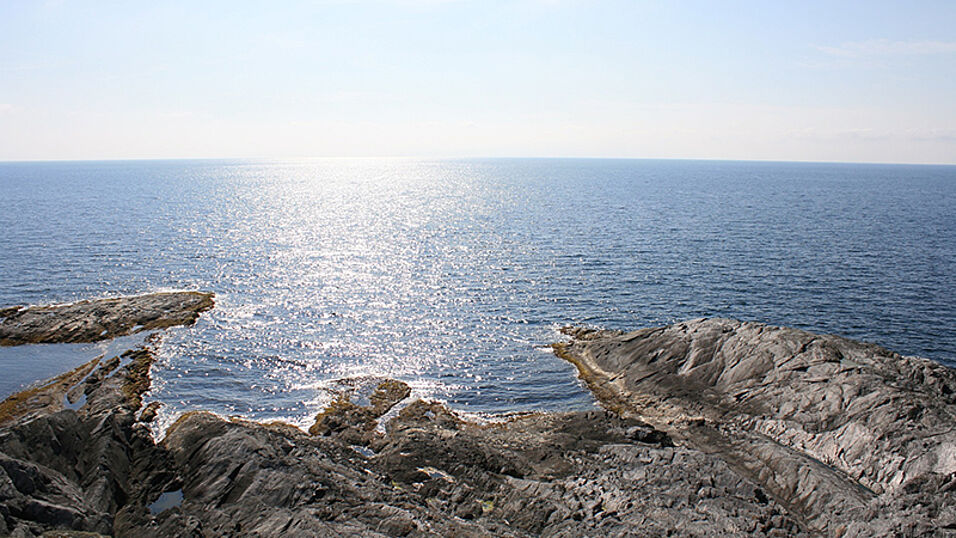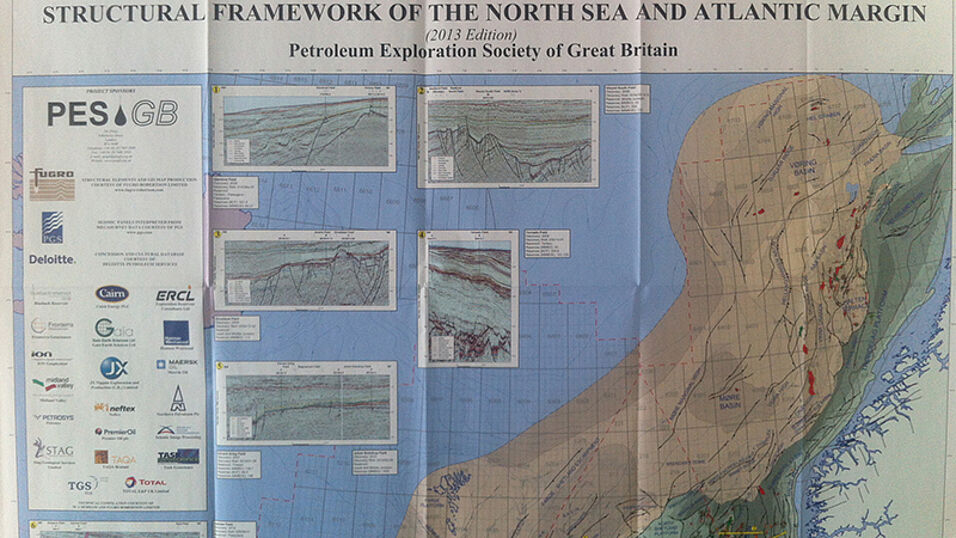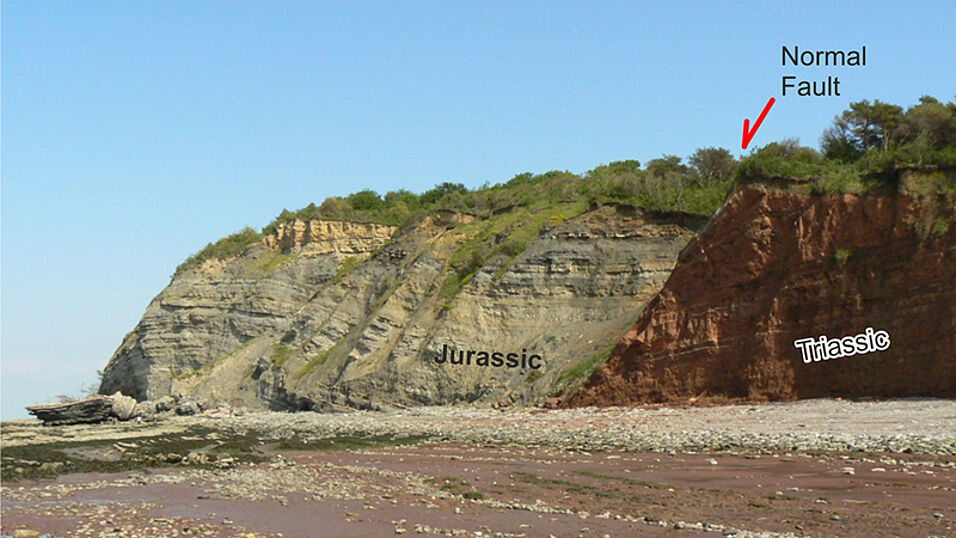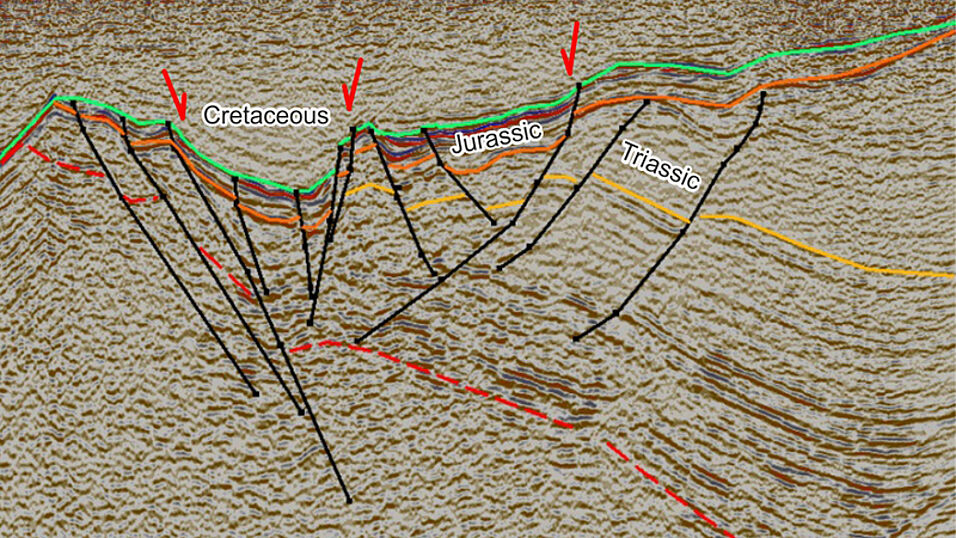"You work like a detective when you try to unravel the history of these sedimentary basins. You combine different data sources, compare data from different regions, and put all these things together to end up with a story. The story tells you when the basin developed, how the region might have looked like about 200 million years ago in Triassic times, and how it changed in the subsequent geological era, the Jurassic – and until recently", says Kateřina Schöpfer, postdoctoral fellow at the Department of Geodynamics and Sedimentology.
The detective quality of her work primarily results from the fact that her object of interest is often hidden kilometers below the Earth’s surface: the researcher is interested in large-scale basin geometries, basin evolution and regional geology of the Northeast Atlantic continental margin – and it is in particular challenging for scientists to explore the depths of the Atlantic on the European side. "Here you sometimes have to deal with a water depth of up to three kilometers and a massive layer of sediment with a thickness of up to 12 kilometers. In addition, frequent layers of volcanic rocks conceal the geological structure that is lying underneath", says the postdoc scholar.
Schöpfer mainly uses seismic and well data to provide geological interpretation of subsurface structures. Sometimes, researchers explore the geological structure in great depth (below the thick sediment) and they cannot longer rely on seismic reflection data only. Then they additionally interpret geophysical data sets that are derived from, for example, ocean-bottom seismometer, gravity or magnetic surveys.
From project to project
After she finished her PhD thesis at the University College Dublin in 2011, Kateřina Schöpfer worked on two projects that focused on Late Palaeozoic and Mesozoic offshore rift basins in the extensional setting of the Irish, the United Kingdom and the Norwegian continental margin. The projects were mainly funded by oil companies "that support basic scientific research and wish to understand the regional, large-scale picture of how the studied basins developed and how similar or dissimilar their structural and sedimentary settings are", Schöpfer explains.
"With the Back-to-Research Grant I finally have the time to write up my results and publish them. Since 2011 I went from one project to another without any time to work on scientific publications. Improving my publication record hopefully increases my chances to get state funding for research projects in the future", says the scientist. This is especially important against the background that third-party funding through companies is highly dependent on the oil price and difficult during the current long-term oil price crisis. Schöpfer’s Back-to-Research Grant project started on 1 May and will run for twelve months.
Back-to-Research Grant of the University of Vienna: The target group of this programme are female postdocs who, during the last five years, have reduced or interrupted their research because of care obligations in their families. The Back-to-Research Grant (EUR 20.000 for one year) is designed to provide women researchers with the possibility to draw up or complete research applications and/or publications in order to ensure that they can re-enter or continue their academic careers.




